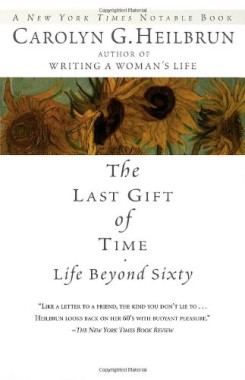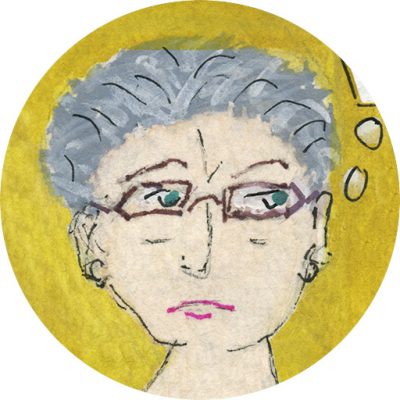There are lots of jokes about forgotten anniversaries, usually to reprove husbands who have forgotten the anniversary of their marriage. I have forgotten my own wedding anniversary numerous times, much to the chagrin of my husband. But an anniversary I would rather not remember is the date of Carolyn Heilbrun’s suicide. Today, October 9 as I write, is the anniversary of my friend’s suicide. Actually, it was a Thursday not a Wednesday, but I guess the date is more to the point, though the day seems more real. Carolyn believed in routine, and Thursday was Susan Heath.
I was in England when Carolyn’s great friend Susan Heath called with the news. Thursday was their designated day for dinner, and when Susan arrived at the building for their date she discovered the body. “The journey is over,” Carolyn wrote in the only note we know about, “Love to all.” Carolyn had left little to chance and she had counted on Susan to have the strength to survive the experience.
 Today I was teaching poems by poets Carolyn loved and admired, even if she had occasional minor quarrels with them―Rich and Sexton. Reading poetry today in the digital age is a heightened experience since we can look at and listen to poets reading their poetry. While looking at the YouTube menu, an interview between Diane Middlebrook and Anne Sexton caught my eye. I couldn’t resist making the students listen to Diane’s voice―we had just read her wonderfully explanatory essay “What Was Confessional Poetry?”―and it seemed appropriate to listen at least briefly.
Today I was teaching poems by poets Carolyn loved and admired, even if she had occasional minor quarrels with them―Rich and Sexton. Reading poetry today in the digital age is a heightened experience since we can look at and listen to poets reading their poetry. While looking at the YouTube menu, an interview between Diane Middlebrook and Anne Sexton caught my eye. I couldn’t resist making the students listen to Diane’s voice―we had just read her wonderfully explanatory essay “What Was Confessional Poetry?”―and it seemed appropriate to listen at least briefly.
Slipped into my copy of Rich’s The Fact of a Doorframe, was a fax from Carolyn: CGH to NKM, dated March 19, 1998. It was the closing stanza of “Snapshots of a Daughter-in-Law.” Beneath the poem Carolyn had handwritten a quotation from The Second Sex in which Beauvoir creates the metaphor of the amazing woman that Rich seems to reprise when she writes–“as beautiful as any boy/or helicopter.” Beauvoir’s prose: “she is a helicopter and she is a bird.”
These two friends loved poetry and both are dead, Carolyn by suicide in 2003, Diane from cancer in 2007. Sexton’s suicide links Carolyn and Diane in my mind. Carolyn was an attentive reader of suicide; so was Diane, since she had also written the biography of Plath in her relation to Hughes.
Suddenly, there I was in the classroom looking at bright young faces and feeling very far away, in a place where death was all too real. I did not mention the anniversary to the students because it would not have been an anniversary for them; they had nothing to remember.
For over 20 years, I had dinner with Carolyn. Tuesdays. As each week passes, I remember that I’m not having dinner with Carolyn, or as my husband used to say, “having Carolyn.” That day of the week always seems empty to me.
I’ve picked up the weekly dinner with Victoria Rosner, who had also been Carolyn’s student. Carolyn almost always dines with us.
I wish Carolyn had not felt so alone. I wish she had let time catch up with her. Today she’d have been 87. It’s not, I think now, that old.
